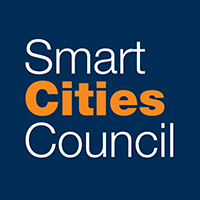Three ideas to close the digital divide in your city
By Kevin Ebi, Smart Cities Council
Pick 10 Americans at random and you’ll find that at least one of them doesn’t use the internet. The latest research from the Pew Research Center finds 11% of Americans don’t go online.
There are some common traits among them. They tend to be older, though they aren’t exclusively elderly. They tend to be poorer and less educated, although there are still a significant number of people in the lower-middle class who aren’t online. And they tend to live outside the downtown core of cities, although even 8% of urban residents don’t use the internet.
This digital divide has a number of consequences. In particular for cities, as they invest more in digital services, they need to be aware that many of their residents could be left behind.
The good news is there are steps cities can take to bridge the gap. Progress is being made. For example, in 2000, among adults without a high school diploma, more than 80% did not go online. Among that population today, the number is just 35%.
Here are a few ways that cities are making progress.
Baltimore provides free tablets, internet
Baltimore is trying to close its digital divide by giving certain residents tablets and wireless internet access — and the effort seems to be paying off. Already, 500 Baltimore Housing Authority residents have received the wireless tablets. T-Mobile provided the tablets for free; the housing authority is covering the cost of the data plans for two years.
For those who have received the tablets, they say it makes a real difference. One resident told the Baltimore Sun that she was able to use the tablet to apply for jobs and that her son is able to use it to complete his school homework. Other recipients have said the tablets will help them start businesses or go to college.
Residents who were picked for the program are enrolled in a self-sufficiency program. The housing authority says while the residents may have smartphones, they typically have limited data plans and that’s tough to write resumes or fill out job applications — or do homework — on small screens.
Giving rural residents internet — and reasons to use it
For rural residents, just the ability to get online is often an obstacle, but it’s not the only one. The Pew Research Center found that more than a third of the people who don’t go online said that they simply had no reason to. The internet wasn’t relevant to their lives.
At West Hills College in California’s Central Valley, the school has invested in efforts to teach students how to apply technology to improve agricultural production. That is an effort that could make the internet more relevant to the community, but access remains a significant constraint. Fewer than half the farms there have broadband, so students typically leave the area after graduation.
San Jose extends access with small cells
There are nearly 100,000 residents of San Jose, Calif., who do not have broadband. Part of the problem, the city has very little fiber that can be used to provide that access. To bridge the gap, it’s working with A&T, a Council Global Lead Partner, to deploy small cells to extend Internet access.
As part of the arrangement, AT&T is paying leasing and permitting fees — money that will help the city expand its digital inclusion efforts. Further, the city and AT&T are working together to provide equitable access in a way that promotes economic development.
Kevin Ebi is Global Managing Editor of the Smart Cities Council, which helps cities become more livable, workable and sustainable. Learn how to advance your city by participating in the 2019 Smart Cities Readiness Challenge.
_____________
To get connected and stay up-to-date with similar content from American City & County:Like us on Facebook
Follow us on Twitter
Watch us on YouTube




















